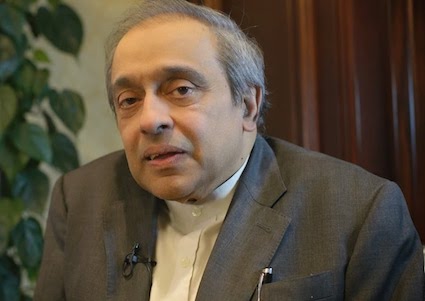Chandra: Mahathir, Anwar sidelined Rukunegara

(Berita Daily) – Former prime minister Dr Mahathir Mohamad sidelined Rukunegara due to his rivalry with former home minister Ghazali Shafie, revealed 1Malaysia Foundation chairman Chandra Muzaffar today.
“Mahathir deliberately ignored Rukunegara. There is not a single speech of his that emphasised on the importance of Rukunegara,” said Chandra at G25’s session on moderation and administration of Islam in Malaysia.
“The subcommittee on Rukunegara was led by Ghazali Shafie and we all know the rivalry of Mahathir with Ghazali. It was real. As deputy prime minister, Dr Mahathir’s political secretary was arrested by the order of then Home Minister Ghazali Shafie,” he said.
“It is a tragedy because Rukunegara is a national philosophy.”
Chandra also noted that Mahathir had a certain ideological understanding and perception of Islam.
“He brought the young Islamist, Anwar Ibrahim. That’s why there is an International Islamic University. He did not want the Rukunegara on the way.
Chandra added Mahathir also introduced Vision 2020 as a way to permanently keep the Rukunegara on the sidelines.
“On February 1991, Mahathir came out with Vision 2020, effectively sidelining Rukunegara. Five out of nine challenges in Vision 2020 are related to Rukunegara.
“He wanted something that made his mark,” he said.
As for Anwar’s reluctance on Rukunegara, Chandra said: “He had a certain view of Islam related to Jamaat Islam similar to Muslim Brotherhood.
“He saw Rukunegara as a barrier to an Islamic order.”
Aside from the two politicians, changing environment also did not make it attractive for Muslims to push for Rukunegara even though the principles did not go against the principles of Islam, Chandra said.
“In the 1970s and 1980s there was rapid urbanisation and Malays in urban areas were conscious of their identity. The Islamic ethos began and Rukunegara did not fit in.”
As for non-Muslims, there were other factors that made Rukunegara not attractive, said Chandra.
“For non-Muslims, they didn’t see it as critical eventhough the principles are universal and inclusive. There is nothing concrete that can be identified like when you look in the constitution,” he said in reference to articles 152 and 153.
“For their politicians, their issues and concerns are of their respective ethnic communities,” said Chandra.

